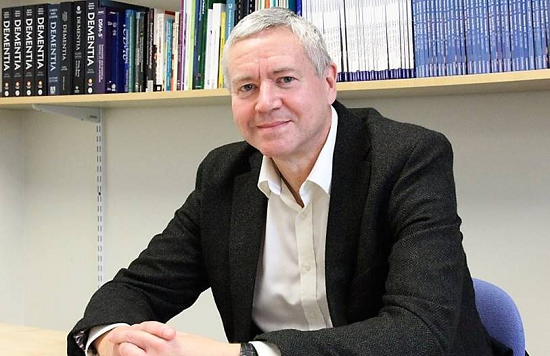Monday 12 August 2019
Ending Blog
Sunday 11 August 2019
Revolutionary Alzheimer’s blood test is 94% accurate 20 years before symptoms develop
Friday 9 August 2019
Mental Health and Dementia
Wednesday 7 August 2019
Londoner smashes world record for 289-mile triathlon by more than four hours
The Evening Standard
Monday 29 July 2019
NHS and medications
Sunday 28 July 2019
Not Coping with hot weather
Monday 8 July 2019
Understanding the obvious in life
We have always had a dog at home, ever since we were lead to believe that we could not have children.
However, not long after our first dog settled in at home, we found out that my wife was pregnant, so our first dog Major, became our daughter "Claires" body guard, as he protected her from the moment she was brought home from the hospital, and not even my mother in law was allowed near to her carry cot.
This was something new to me as I had never heard of animals being so protective like this ever before.
Major had not seen claire before,
but for some reason, he instantly took up his role as her protector.
After our son Mark was born, the same thing happened again, and he protected us all in more ways than one, until he died of cancer.
Not long after this we got another dog "Ben" , who was very nervous, but as I became ill we seemed to get closer, without me realising what was going on.
After losing my job as an Engineer to this illness, I spent a lot of time at home, and Ben, started to follow me everywhere I went, but I never understood why until much later.
Around this time I started to see things in the house, but could not understand why Ben never moved from my feet, and never seemed to notice these things.
This was usually birds, flying around the house, then this changed to big "spiders"
My wife later told me, that if Ben never moved, these things were not there, it was simply my brain playing tricks.
After being finally diagnosed with Early Onset Lewy Body dementia and was put on medication we realised Ben was ill.
He then died of cancer and that was very hard to cope with at the time, because there was a strong bond between us, something I did not understand at the time.
Afterwards the vet told us, that he had been ill for some time, but had probably kept it hidden until I had been diagnosed , then decided it was his time to go.
This made life do much harder, to understand at the time.
However this proves that animals are much more understanding, and in some cases more caring than humans, because they have the ability to pick up our problems.
Although Ben drove me mad at times, when he was following me around, I guess he was protecting and watching over me, so in many ways he was doing something similar to a dementia/ service dog, apart from the fact he was not trained to do the job.
He had his own problems with his nerves, and became a physical wreck when there was fireworks going off, so I spent time sitting on the floor holding him and trying to calm him down.
I vaguely remember being called out at night to go to work, as I was on call for emergencies 24 hours a day.
When I got home Ben's head would be poking out of the cat door waiting for me to return.
I often wondered if someone had done something to him earlier in his life, and that was the cause if his nervous problems.
However apart from that, he like Major was a lovely dog to have around.
Sunday 30 June 2019
Processing information 2
Monday 24 June 2019
World leading expertise in dementia with Lewy bodies
World leading expertise in dementia with Lewy bodies at local NHS Trust

John said: “Obviously I am delighted by this news, which reflects the hard work of study teams and collaborators in Newcastle and Cambridge with whom I have had the pleasure of working with over the last 10 years. The fact that my colleagues Clive Ballard (Exeter) and Dag Aarsland (King’s College London) also make up the top three, with England listed top country worldwide, is a testament to the real excellence of Lewy body dementia research here in the UK."We will continue to build on this, and I am very grateful to all our funders, including NIHR who funded the recent DIAMOND-Lewy Programme, and to the NIHR Clinical Research Network’s Dementias and Neurodegeneration specialty – who play a pivotal role in successfully delivering all our studies.”
We support around 100,000 people each year and employ more than 3,700 staff. Our largest bases are at the Cavell Centre, Peterborough, and Fulbourn Hospital, Cambridge, but our staff are based in over 90 locations. We are a University of Cambridge Teaching Trust and member of Cambridge University Health Partners, working together with the University of Cambridge Clinical School. Together with global, national and local partners we conduct high-quality and ground-breaking research into mental and physical health and support innovation to improve patient care.
End of the blog
After giving it a lot of thought over the last few months, I have decided to finally stop writing this blog now This is for a few reasons, b...
-
Dementia and Eyesight problems I noticed some time ago, that my eyesight was giving me problems when trying to read and concentrate on t...
-
A few weeks ago I wrote about problems processing information, but over the last few days I have noticed other problems, which will have an...
-
Lord help me with this illness I want to be as I was, but cannot turn the clock back To understand what is happening to me, To a time wh...